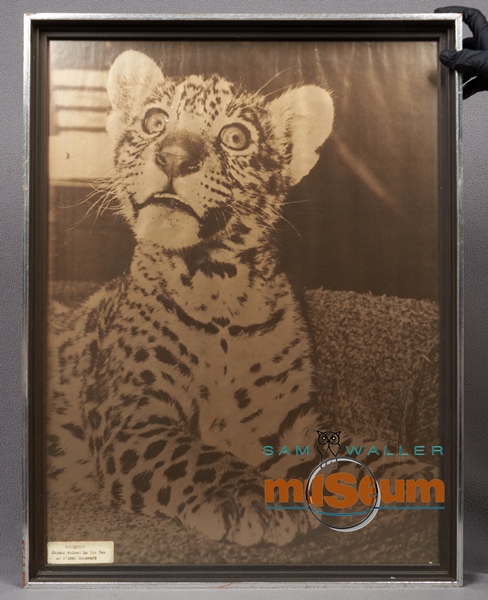This collections item is a black and white photograph of Gweniveer, a jaguar. Gweniveer is an alternate spelling of “Guinevere”, famous from the King Arthur legend. Gweniveer was raised in The Pas. We don’t know exactly when the jaguar lived in The Pas but we do know the owner of Gweniveer also owned an ocelot, which is also a wild cat from the Americas; however their size is much smaller than jaguars. Like jaguars, though, they are also hunted specifically for their furs, leading to their being threatened in some of their habitats. Additionally, just like jaguars, ocelots have been kept as pets. Big cats are kept as house pets around the world. It is estimated there are more tigers living in captivity in the United States than there are left living in the wild. By one estimate approximately 500 lions and tigers live in Ontario alone.
In Canada a pet is considered personal property and therefore falls under provincial jurisdiction, though the trade and import/export is under federal jurisdiction. In Canada generally the ownership of exotic pets is poorly regulated. The Canadian Veterinary Medical Association’s position is that it “does not condone the keeping as pets of any native or exotic wild animal species, or hybrids thereof, that are considered to be inherently dangerous to humans and other animals. Veterinarians are also discouraged from performing surgical procedures on these animals for the sole purpose of making the animal a safer companion.” The City of Winnipeg has a list of prohibited animals that includes, “but [is] not limited to, lion, tiger, leopard, ocelot, jaguar, puma, panther, mountain lion, cheetah, wild cat, cougar, bobcat, lynx, serval, and any hybrid offspring of a wild cat and domesticated cat.” If someone is caught with a prohibited animal the pre-set fine is $1,500, $750 if it is paid early.


